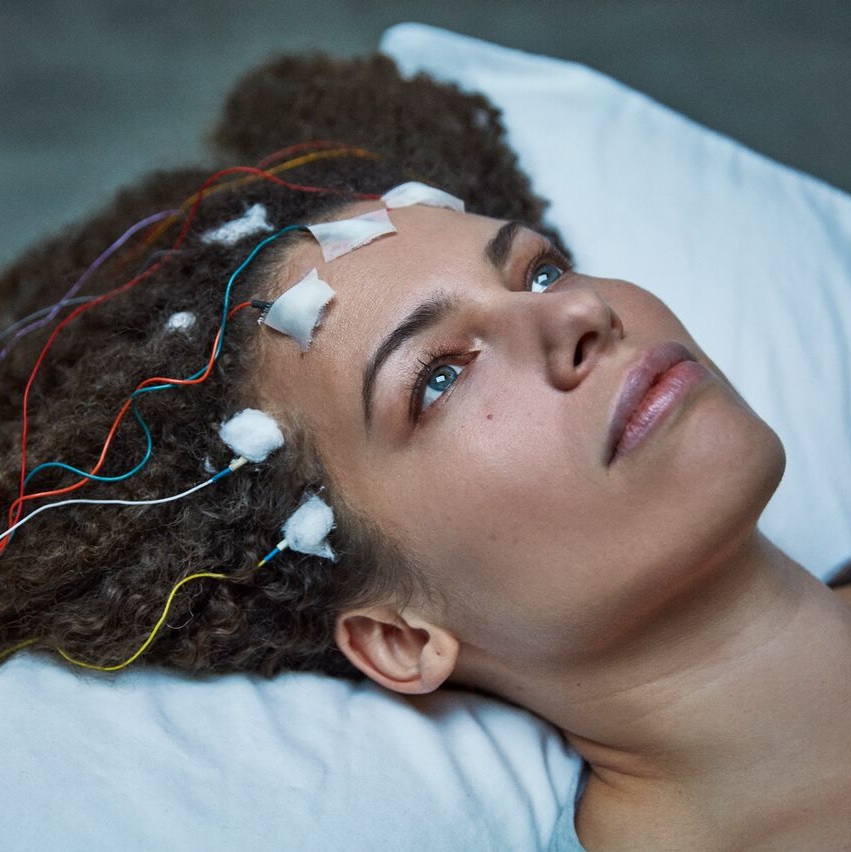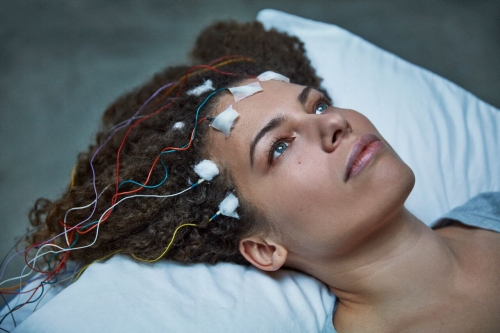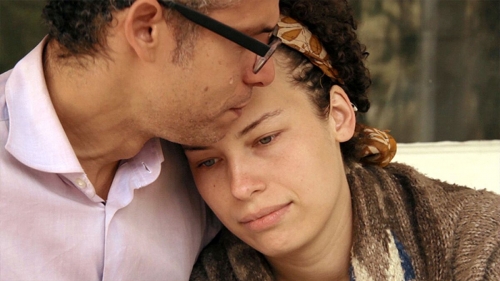Action Forum Feature Film: Unrest
The following is written by Jennifer Brea about her story and how it relates to the theme of the Action Forum.
We often remember our lives by its thresholds and doorways — its gating moments. The time before and the time after. I remember the morning before the World Trade Center Towers fell. I remember the night America elected its first black president. I remember the last time I went hiking in the Aspen mountains, not knowing it would be the last time.
I remember the last time I was well. I was at a restaurant in Cambridge, Massachusetts to celebrate two graduate school friends who were moving away. When the check came, I stared at it, almost immobile, not understanding why I couldn’t remember how to write my own name.
Over the course of the next many months, I ran a gauntlet of doctors who couldn’t explain what was happening to me. Some thought I was stressed or depressed. I was frequently told there was nothing wrong with me at all. The neurological symptoms multiplied. I went from only being able to ride my bike a few miles, to barely being able to make it to the end of the block, to barely being able to sit up in wheelchair. Eventually, I found myself in bed twenty three hours and fifty minutes a day often unable to read, write, think or tolerate light, sound or touch.
I was eventually diagnosed with Myalgic Encephalomyelitis, commonly called Chronic Fatigue Syndrome, perhaps the most profoundly misunderstood disease of our time. It’s a disease that can destroy careers, fracture families, and leave people homebound or bedridden for decades. At its most severe, some patients are confined to dark rooms, unable to tolerate light, sound or touch. Yet patients are often dismissed for years. While scientists at the world’s top institutions have found evidence of profound metabolic, neurological and immunological dysfunction, commercial lab tests frequently come back normal, and since ME is rarely taught medical schools, many doctors don’t know how to diagnose the disease.
In those first months, left essentially on my own without treatment or a clear path forward, there was little I could do but lie in bed, watch Netflix, and when I was well enough, ruminate. Would I ever be able to leave my home again? My whole life, I had derived so much of my sense of self from my ability to read, write and think. If everything that made me who I was lost, who was I? What value did my life have? Why was I alive?
I found my lifeline on the internet. Online, I met thousands of people, all over the world, living the same experience. We shared our stories, supported one another, and found meaning in facing our enormous challenges, together. Out of the devastation of our lives, we made something beautiful.
It was in conversation with that community that I found my way back to myself. I started filming me and my husband, Omar, as we confronted the reality of a potentially lifelong chronic illness. At first, Omar and I grieved the life we originally dreamed of together. In time, grief gave way to gratitude, as we found new strength and meaning in our community and in each other. And as I began filming some of the remarkable people I met in my patient community from my bed, my ambitions expanded into a feature documentary. The result was my film Unrest, and the discovery of a voice, a passion and a profession as a filmmaker and an artist.
I was asked to try to contemplate my story in the context of this year’s Action Forum theme: The Great Re-Set. Around our planet, we face profound upheavals in our politics, our economies, in the very fabrics of our lives, and our response everywhere seems to be to fold in on ourselves. To shut our borders. To unlink. All at the very moment when we face such pressing, collective problems, not least of which, whether we as a species can survive. In the face of tectonic shifts, what relevance could my story have?
Getting sick the way that I did forced me to learn a lesson that I may not have wanted to learn this early in life, but it forever changed me. When we confront tragedy or overwhelming change, those moments that all of us will one day have to face, what matters is how we choose to react. Do we fold in, or do we reach out? Do we silo ourselves behind defensive walls, or do we find a way to hold each other even tighter? Do we embrace the certainties of the world we thought we knew, or do we lean into the unknown, trusting that we will find our footing on the other side? If we are lucky to live long enough, we will all face a choice, and I believe in those moments, the most profound choice we make can is to love one another.
Jennifer Brea is a filmmaker. Her documentary, Unrest, premiered at Sundance in January where it won a Special Jury prize. It will air on PBS’s Independent Lens in early 2018.
Other Recent Posts
The final day of the 2019 Resnick Aspen Action Forum closed with a celebration of intergenerational perspectives that included presentations from young leaders and a discussion between AGLN Moderator and South African Fellow Heather Sonn and Keith Berwick, long-time friend and founding executive director of the Henry Crown Fellowship. ...
When Anousheh Ansari was seven years old, she drew a photo of a rocket flying through space and set her eyes on exploring outer space being astronaut. There was no space program in Iran at the time and the chances of Ansari becoming an astronaut were slim. “I like to prove people wrong,” said Anousheh Ansari on stage at the 2019 Resnick Aspen Action Forum. On ...
The 2019 John P. McNulty Prize laureates, five extraordinary individuals, shared their courageous and bold social impact ventures at the Resnick Aspen Action Forum on Wednesday night. McNulty Foundation President Anne Welsh McNulty, who founded the award in honor of her late husband, described the McNulty Prize as a call to action. “You have shown ...
Borders are a part of life –– whether internal, invisible, geo-political or otherwise. Borders can help and they can harm. Borders are powerful and they can also be a form of power. Understanding the borders that are around and within us can lead to greater self-awareness and open the path for making great change in the world. With inspiration from the ...
1. Draw inspiration from other participants Over 1,000 Action Pledges have been made since the inaugural Action Forum in 2013. Watch the video below on some highlighted Action Pledges. 2. Find your sweet spot The most exciting Action Pledges come from what we call your sweet spot, the intersection of your passions, talents, and your community’s ...




Leave a Comment